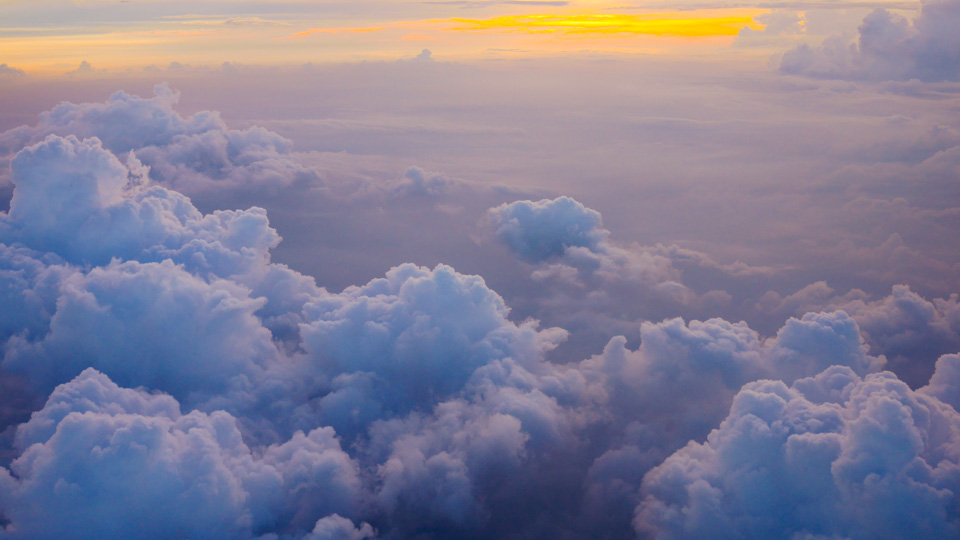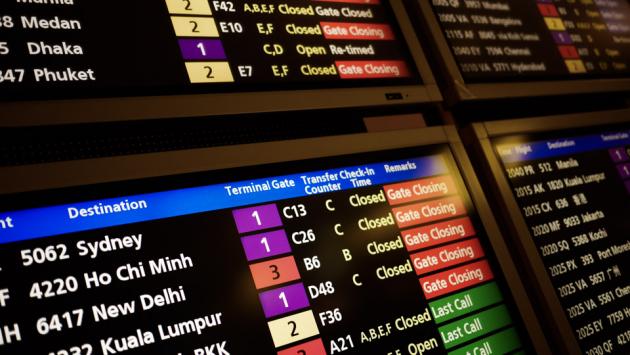If you haven't already, imagine for a moment you were one of the passengers aboard MH370 when you became aware that your aircraft had deviated wildly from its set course.
Whatever other fears this might have prompted, one thing that you would not have considered is the possibility that your flight might have effectively disappeared from the face of the earth. None of us could have imagined that.
It's coming up for three weeks since one of the world's great aviation mysteries began to unfold. And while we know more today than we did following the confused days of inept official pronouncements from Malaysian airline and government officials, progress in finding the aircraft, let alone arriving at a definitive explanation of what happened, continues to elude.
The excruciating scenes playing out in Beijing tell of the incredulity of the families. Chinese people are not unaccustomed to mass disaster and official prevarication. But nobody can accept that a large commercial aircraft can disappear in 2014. And nor should they have to.
Anyone who has been boarding international flights since 9/11 knows the extent to which those attacks changed attitudes and practices at airports and on airplanes. And we've all been willingly inconvenienced to varying degrees by invasive searches, interrogations, baggage inspections and delays.
Travellers have kept our part of the bargain and cooperated with massively expanded security and surveillance initiatives.

Photo: Mark Bowyer
So how could it be that after all that and hundreds of billions of dollars of investment in making global air travel more safe, that an aircraft can veer radically from its planned route without sending an alert - and then disappear without an obvious trace?
Nobody expects air travel to be completely risk free. Indeed it is a very safe way to travel. But we do expect obvious measures to be in place to ensure hundreds of people and hundreds of millions of dollars worth of aircraft can't simply disappear in a busy aviation corridor.
International airlines, airports and airline manufacturers are required to meet mind-boggling safety standards. How could it be that they aren't required to install equipment that transmits automated alerts whenever an aircraft makes a major diversion from its planned course?
For what possible reason might flight crews be given an option to switch off their communications with the outside world? And why isn't every airline required to permanently track all of its commercial flights? How can it be that airplanes can offer internet services, satellite tracking and so on - and still disappear?
These seem like the kinds of questions that should have been asked right after 9/11, not almost 13 years after. And technological advances have made such measures easier and less expensive than ever.
That such obvious safety failures have now been revealed, will diminish confidence in international aviation.
There's another important question too. And that is whether these poor practices are the international aviation standard or whether Malaysian Airlines operates to a lower standard than other carriers?
Last week there were reports that such a disappearance could not occur over the Atlantic as flights on those routes are required to have a further tracking technology on board.
Why wouldn't such tracking be mandated globally for all commercial airlines as other standards have been?
While attention during the past week has shifted to the missing aircraft and flight crew, in the early days after the disappearance, another scandal of post 9/11 security emerged.
News that at least two of the passengers aboard the flight were travelling on stolen passports led to revelations of the vast scale of passport and identity theft (Interpol says it has a record of tens of millions of stolen passports).
It was revealed that many nations, including Malaysia, have elected not to use the Interpol list when conducting migration processing at airports.
This is another security failing that will come as a shock to international travellers.
Airports and airlines that are disinclined to meet these obvious standards should be outed so that travellers can make informed choices about who they entrust with their safety. My guess is, a public outing would very quickly see airports and airlines rush to correct these failings.
The chances of us never fully understanding what happened to MH370 grow each day as debris likely scatters and clues become harder to find.
In another 21st century absurdity, even if the cockpit voice recorder is located, it's reported that it will only record the final two hours of cockpit conversation - far less than an average iPhone can record. And this will be of little use if the aircraft was flying on auto-pilot with crew and passengers unconscious.
If foul play was the cause of the disappearance of MH370, our inability to understand its origins increases the possibility of a repeat.
The passengers and crew of MH370, their families and friends and all international air travellers have been lulled into an assumption that basic common sense aviation safety practices are in place. They are not. We assumed that post-911, obvious failures had been corrected. We now know that they weren't. There was plenty of focus on invasive, coercive initiatives, the natural comfort zone of security planners and not enough on raw common sense.
Will things improve after this tragedy?





There are no comments yet.